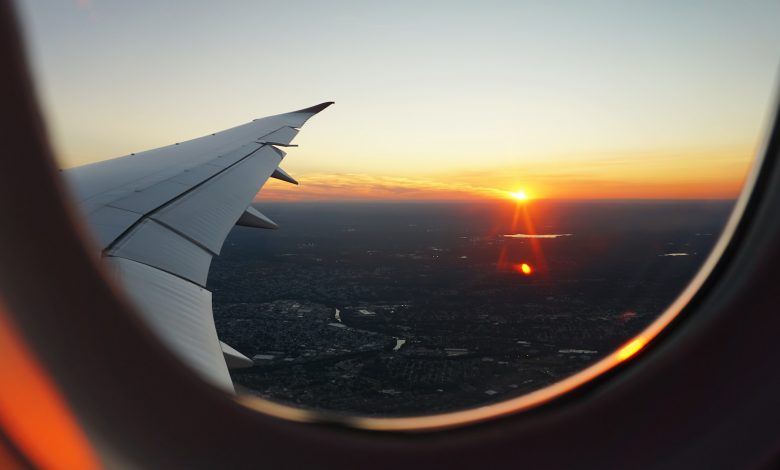How to Travel to a Place You Know Nothing About

Introduction
Sometimes, you just want to go someplace new. When you’re feeling adventurous, but also don’t have a lot of time or money to spend on travel, it can be easy (and fun) to figure out how to leave your comfort zone and go somewhere exciting without knowing much about it.
Pack light.
Packing light is the best way to stay comfortable on your trip. You’ll be able to move around easily, and you won’t have as much stuff weighing you down or taking up space in your hotel room.
Your packing list should include:
- Clothes that are easy to wash and dry (like cotton).
- A small bag for carry-on so that if there are any extra items, they can go into this bag instead of taking up valuable suitcase space.
Don’t over-schedule yourself.
You’re going to be exhausted. You’re going to want to see everything, and you won’t have time for it all. Don’t try to cram too much into a single day–you’ll just end up feeling tired and overwhelmed by the end of the day. Instead, take it easy: go slow and enjoy what you are seeing instead of rushing from one spot on your list to another in an attempt at being efficient (which will only make you miss out on some amazing sights).
You also don’t want to overbook yourself with tours or activities; this will leave no time for exploring on your own or relaxing at certain stops along the way!
Look at maps in advance.
The first step to visiting a place you know nothing about is to get familiar with the map. You may be going somewhere with no knowledge of its layout, but if it’s not your first time in that area, then look at maps in advance. Look at a map of your destination city and/or neighborhood (if applicable). Look at an airport map for each airport you plan on flying into or out of. If possible, take screenshots so that they’re easy to access later on when you need them most!
Find your local embassy or consulate before you leave home.
Find your local embassy or consulate before you leave home. The embassy or consulate can be a great resource for any number of things, including passports, visas and other travel documents. They also provide medical care in case of emergency. You can find your local embassy or consulate on the internet — just search for “embassy” + (your country’s name) + city/state/province. If you’re not sure how to do that at home, ask someone who lives there! Or look in a phone book if there’s one around where you live now; most countries have an embassy in Washington DC as well as one closer to home (for example: France has an embassy both in DC and Paris).
Research the health and safety situation in your destination country, city, and neighborhood (if applicable).
Before you go, it’s important to research the health and safety situation in your destination country, city and neighborhood (if applicable). The Centers for Disease Control (CDC) provides information on specific diseases that may be prevalent in the area you are traveling to. The World Health Organization (WHO) also has detailed information about travel health. You should check these sites before traveling abroad as well as after returning home from a trip abroad to see if there were any new developments related to disease outbreaks or other events such as natural disasters or political unrest that could affect your trip or future travels.
The State Department publishes travel advisories for each country it classifies as “do not travel” due to high levels of violence or crime; however this does not mean that it is unsafe for all Americans at all times–only those who fall into certain categories should avoid traveling there altogether due to their personal circumstances.”
Plan for communications, internet connections, and power sources for your devices.
- Make sure you have a portable charger for your devices. You never know when the battery will die and you’ll need to recharge, so it’s always best to be prepared.
- Find out if there is Internet access in your destination, and where it is located. If there is no wifi in the hotel or hostel where you are staying, consider carrying along a wireless hotspot device like MiFi or TEP wireless hotspot devices (which can be purchased at most electronics stores). They’re small enough that they won’t take up much space in your luggage!
- Plan ahead for power outages–if possible let someone know where your hotel/hostel is located so they can find out if there has been any damage due to natural disasters such as hurricanes or earthquakes before arriving on site; also check with local authorities about emergency preparedness plans just incase something does happen while abroad!
Carry a small flashlight in case of power outage or other emergency.
A flashlight is a must-have item for any traveler. It’s small enough to carry in your pocket and can be used for many purposes, including finding your way around in the dark or checking if an electrical outlet works before plugging in your phone charger.
If you plan on using public transportation (such as buses or trains), it might be helpful to get one with an SOS mode that flashes SOS signals when pressed repeatedly. This will help identify you as someone who needs help if something happens while traveling abroad!
You can find flashlights at any store or online retailer like Amazon; they’re cheap too–you won’t spend more than $10 USD on one of these lifesavers!
Traveling somewhere you don’t know much about can be an exciting adventure
Traveling somewhere you don’t know much about can be an exciting adventure. You will have to rely on your instincts, but don’t worry too much about the details; getting lost is part of the fun. It is important to know the basics of your destination, such as where the bathroom is located or which stores sell food items (and how expensive they are). If you’re staying at an Airbnb or hotel, it helps if you have an idea of what neighborhood it’s in so that if anything goes wrong during your stay, there are other people around who might help out.
You need to pack light when traveling somewhere new–but also make sure you have everything needed for whatever activities may arise while there!
Conclusion
Traveling somewhere you don’t know much about can be an exciting adventure. If you’re planning on visiting a new country, city or neighborhood, it’s important that you prepare for the health and safety situation there. You should also research communications and power sources so that your devices do not die during your trip!



